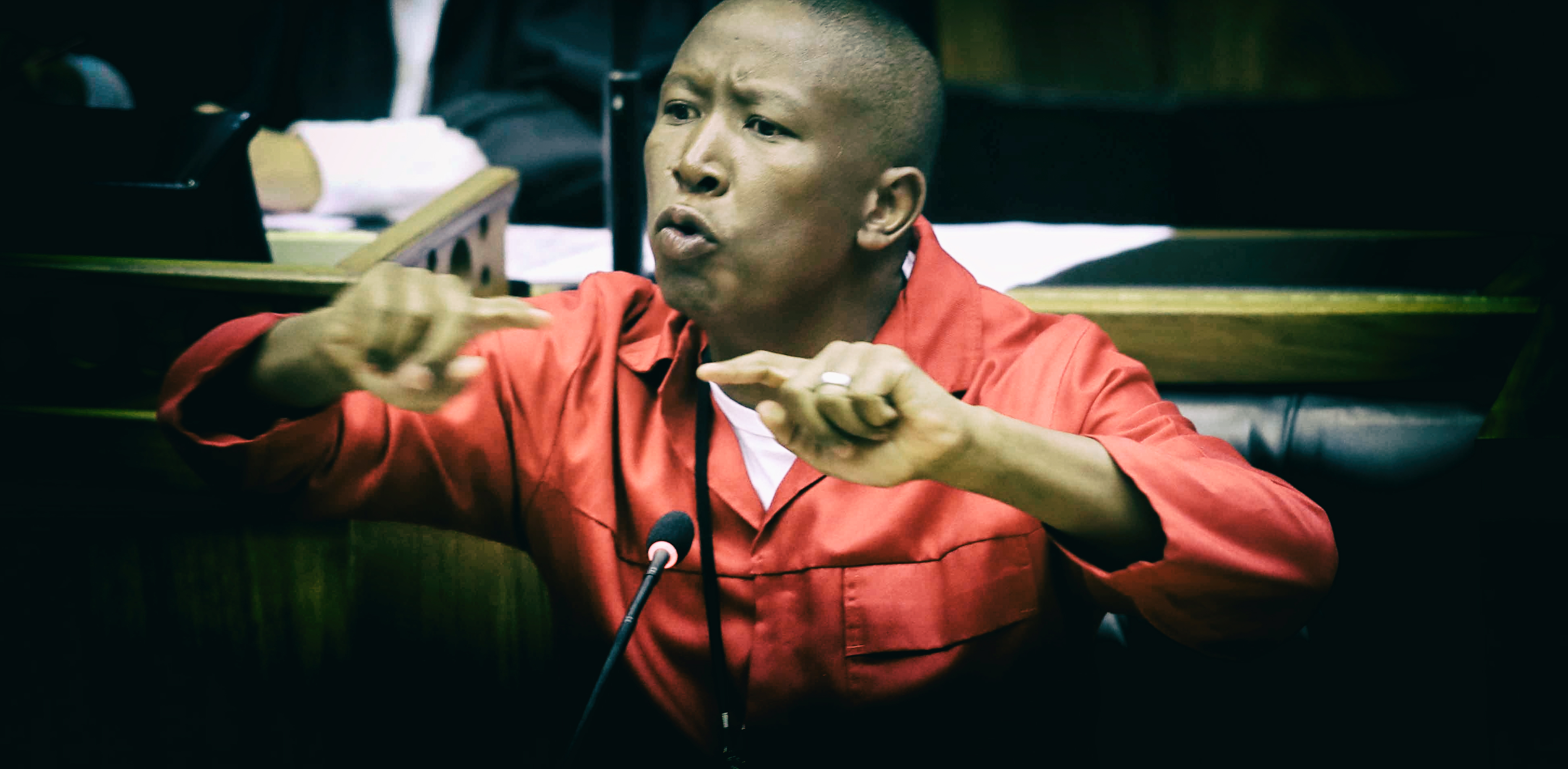This will probably not be the last incendiary statement made by a politician during the election campaign, raising the question of whether such statements are prohibited by the Electoral Act and whether politicians standing for election (and the parties taking part in the election) face any serious legal consequences for making such statements.
Election campaigns tend to bring out the worst in people. During election campaigns political elites, fighting to acquire or hold on to political power and access to resources, as well as some of their passionate supporters, may go to extreme lengths to depict their political opponents as dangerous enemies who must be defeated at any cost and by any means necessary.
Politicians and their supporters are also more likely to spread lies about political opponents or about anyone who criticises the policies of their chosen party and the actions of its leaders.
While voters will take most political rhetoric with a pinch of salt (as they should, which is why I don’t take the election promises made by political parties very seriously), extreme rhetoric aimed at instilling fear in opponents or critics, or even aimed at inciting violence against opponents and critics, threatens the freeness and fairness of the election campaign.
Deploying such extreme rhetoric during an election campaign is therefore profoundly anti-democratic. It attempts to use fear and intimidation to silence critics and mobilise supporters, something not permitted in a democracy.
South Africa’s Electoral Act recognises this potential problem. The act therefore specifically regulates the behaviour of political parties taking part in an election campaign, primarily (but not exclusively) through the enforcement of a Code of Electoral Conduct, contained in Schedule 2 of the Electoral Act.
In terms of section 27(2)(a) of the act, the code binds every political party taking part in the election. It also binds persons holding political office in such political parties, and of the representatives and members of such parties.
The Code of Electoral Conduct places positive duties on registered political parties and candidates to promote the purpose of the code and to publicise its content. Section 3(b) and (c) of the code also requires every registered party to instruct “its candidates, persons who hold political office in the party, and its representatives, members and supporters, to comply with this code and any applicable electoral laws” and to take all reasonable steps to ensure they do.
The same section furthermore requires the party’s candidates, to instruct “the representatives and supporters of the candidate to comply with this code and any applicable electoral laws” and to take all reasonable steps to ensure they do.
These sections make clear that political parties and candidates cannot evade responsibility merely by arguing that the threats, intimidation and even violence meted out by supporters of a political party have nothing to do with them.
The code makes clear that it has everything to do with political parties and candidates. They have a duty to take reasonable steps that go beyond merely instructing their followers to follow the code, to prevent them from reverting to violence or intimidating opponents. It is not enough to “instruct” followers with a nod and a wink to refrain from intimidating others, while at the same time inciting their followers to treat their opponents as enemies who have to be destroyed or silenced.
Given the rampant sexism and entrenched patriarchy in society and the violence against women produced by it, section 6 of the code is of particular importance. This section states that:
“Every registered party and every candidate must: (a) respect the right of women to communicate freely with parties and candidates; (b) facilitate the full and equal participation of women in political activities; (c) ensure the free access of women to all public political meetings, marches, demonstrations, rallies and other public political events; and (d) take all reasonable steps to ensure that women are free to engage in any political activities.”
Given the recent attacks on Karima Brown by Economic Freedom Fighters leaders and subsequent vile threats levelled at her by people who say they are EFF supporters, section 8 of the code is particularly relevant: It requires every registered party and every candidate to respect the role of the media before, during and after an election. Even more importantly, the section instructs registered parties and candidates to:
“take all reasonable steps to ensure that journalists are not subjected to harassment, intimidation, hazard, threat or physical assault by any of their representatives or supporters.”
It is clear from the manner in which this section is phrased that it would not be sufficient for candidates to distance themselves from the actions of their supporters or to argue that such harassment or intimidation is purely a matter for the police. If candidates fail to take active steps to prevent their supporters from harassing and intimidating journalists, they would be in breach of the Electoral Code.
As I will explain below, such breaches could have dire consequences for the offending political party and its candidates.
Section 9 of the code places an onerous obligation on registered parties and candidates taking part in the election to provoke their followers. In this regard, section 9(1)(a) of the code states that:
“No registered party or candidate may use language or act in a way that may provoke:
-
violence during an election; or
-
the intimidation of candidates, members of parties, representatives or supporters of parties or candidates, or voters.”
The wording of this section is extremely broad. It does not require proof that the party or candidate intended to provoke violence or intimidation, but appears to set an objective test which, I guess, would require proof that a reasonable person would believe that the language or act would provoke violence, intimidation or the like.
A party or candidate would therefore not be able to argue that they did not foresee that the statements would lead to violence or intimidation, when every reasonable person (knowing how that party’s members usually react) would have predicted that the violence or intimidation would have ensued.
In the Karima Brown case, we know that the statements by Malema did lead to threats of violence and to intimidation by EFF supporters, which means that it would be rather difficult for the party to argue that the section has not been breached.
It is true that section 2 of the act requires that its provisions be read to give effect to the guarantees and responsibilities contained in the Constitution, but these guarantees do not only include the right to freedom of expression, but also to the rights of freedom and security of the person and the right to free, fair and regular elections.
It would, therefore, be difficult to argue that the section does not mean what it says because it infringes on the right to freedom of expression of candidates and political parties who incited violence and intimidation against those who disagree with them.
The code applies from the day the election is promulgated (which happened last week). However, some of the provisions listed above appear to impose restrictions on parties and candidates only and as political parties will only submit candidate lists next week, these provisions may not yet be in force against candidates standing for election. (The act is somewhat unclear on this point, as another section of the act says the code applies to everyone during the entire election.) In any event, this would not preclude the political party being liable for the actions of the leader of that party.
In terms of section 95 of the act, the chief electoral officer may institute civil proceedings before a court, including the Electoral Court, to enforce a provision of the Electoral Act or the code. Section 96 further states that the Electoral Court has final jurisdiction in respect of all electoral disputes and complaints about infringements of the code, and no decision or order of the Electoral Court is subject to appeal or review.
The act has real bite. First, section 96(2) states that if a court finds that a person or registered party has contravened a provision of the Electoral Code it may “in the interest of a free and fair election impose any appropriate penalty or sanction on that person or party” who contravened the code. These penalties include a formal warning; a fine not exceeding R200,000 or the forfeiture of any deposit paid by that person or party.
It also includes the possibility of issuing an order prohibiting that person or party from using any public media; holding any public meeting, demonstration, march or other political event; entering any voting district for the purpose of canvassing voters or for any other election purpose; erecting or publishing billboards, placards or posters at or in any place; publishing or distributing any campaign literature; electoral advertising; or receiving any funds from the state or from any foreign sources.
More severe punishments that could have drastic negative consequences for a political party could also be imposed. These include an order reducing the number of votes cast in favour of that person or party; an order disqualifying the candidature of that person or of any candidate of that party; or an order cancelling the registration of that party.
This means that in extreme cases the court can deregister a political party whose candidates continue to incite violence or whose statements provoke violence or intimidation by their supporters. If this extreme punishment is imposed, the party would not be able to take part in the election at all. One assumes this last remedy will only be imposed if the actions of the particular political party or its candidates threaten the freeness and fairness of the election.
But this is not the end of the matter. There is a second reason why the act has real bite. In terms of section 96(3) a candidate who acts in breach of the Electoral Code could also be criminally prosecuted over and above facing all the sanctions mentioned above. Any person convicted of such an offence could be sentenced to a fine or to imprisonment for a period not exceeding 10 years.
The provisions of the code and the possible sanctions will only be effective if the code is properly enforced. It remains to be seen whether the relevant authorities will have the stomach to take action against political parties and candidates whose actions are aimed at undermining the smooth running of a free and fair election. DM





